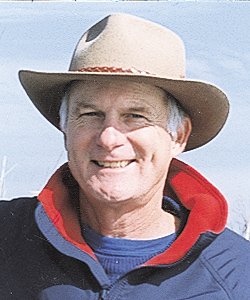We just returned from a Smithsonian organized tour of Southern Africa. The expertise Smithsonian makes available during these outings is well worth the price.

One of the experts who traveled with us was Dr. Don Wilson. In addition to accompanying us on jeep drives through several parks and reserves, Don offered lectures on geology, animals, and bats (his specific expertise). One of my favorite memories was from a presentation he gave on animal classification. He was describing the identification of new species and the process of determining how new finds would be classified. A woman in our group asked who made the decision to determine that a new distinct category had been identified (I have a biology major, but I cannot remember at what level of the phylogenetic tree he was describing.). Don paused a minute and then replied “I do”. She seemed think he was joking. He wasn’t.
In a private conversation, I asked him how the Smithsonian was addressing the controversy over whether or not the climate was changing as a consequence of human behavior. He said that the scientists were concerned with the findings that were being generated and by the political indifference that some leaders were promoting. All the Smithsonian can do is offer resources that we hope can inform the public.
I wanted to investigate what the Smithsonian might have available when I got home and I found the Smithsonian Learning Lab I thought might be of value to the educators who follow my posts. As often as I look for online resources for educators, I admit I had to considered seeing what the Smithsonian makes available. The Smithsonian offers a huge volume of content it has collected and offers suggestions for activities.

You must be logged in to post a comment.